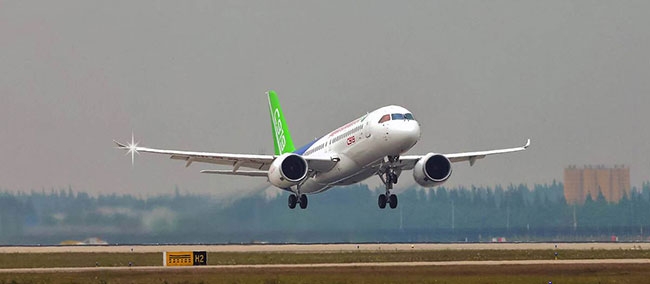
News
At the Gate: Leading the AI charge
Led by Quebec, Canada’s aerospace industry hopes to cash in on a new government initiative to boost investment in artificial intelligence (AI), advanced manufacturing and other digital-driven technologies that can be applied throughout the life cycle of aircraft.
June 22, 2017 By Brian Dunn
 “The roughly 200 companies in Montreal’s aerospace cluster employ some 40 Led by Quebec
“The roughly 200 companies in Montreal’s aerospace cluster employ some 40 Led by QuebecMontreal is aiming to become a “super cluster” in AI, a suite of technologies that the aerospace industry is applying to analyze the vast amounts of data generated during the design, manufacture and operation of aircraft.
Headed by Aéro Montréal, its aerospace cluster hopes the new innovation strategy will attract the expertise in advanced software and systems design that is needed to be competitive going forward.
The federal government’s latest budget proposes a new department, Innovation Canada, that will invest up to $950 million over five years to support a small number of business-led super clusters with the greatest potential for driving economic growth. A competition for the funds is being held this year focusing on advanced manufacturing, clean technology, digital and other sectors in addition to transportation.
Quebec’s own budget includes plans to invest $100 million over five years to create a scientific and industrial super cluster devoted to AI.
The proposed super clusters will develop know-how that can be applied across several industry sectors, according to Suzanne Benoit, president of Aéro Montréal. “In its budget, the Quebec government recognizes the importance of developing transformative technologies with investments aimed at creating a super cluster in artificial intelligence and developing the sector of virtual reality,” she says. “These new technologies alone present enormous potential for our aerospace companies.”
The roughly 200 companies in Montreal’s aerospace cluster employ some 40,000 workers and generate about $15.5 billion in annual sales, according to Aéro Montréal. The sector has about 185 small- to medium-sized enterprises (SME) in addition to OEMs Bell, Bombardier, CAE and P&WC. Developing the capabilities of the SMEs is a major part of Aéro Montréal’s raison d’être.
The entrepreneurial and engineering skills it is hoped an AI super cluster will bring to Quebec are expected to play a role in the aerospace industry’s ongoing transition to “Industry 4.0” which includes virtual design, automation and connected manufacturing, a task that falls heavily onto Aéro Montréal because of the high proportion of small companies in the cluster.
The cluster also includes educational establishments and Aéro Montréal works with the region’s trade school, technical schools and universities, to ensure a supply of engineers and technicians.
“When we know that the industry is booming, we do a big campaign to get students enrolled,” Benoit says. “When there is a slowdown, we adjust the flow so everyone will get a job.”
The region’s aerospace sales declined in 2016, to $14.4 billion from $15.5 billion a year earlier, due to the downturn in business aviation and commercial helicopters. Bombardier has been shedding jobs as part of its five-year turnaround plan, but Benoit says Aéro Montréal has a strategic working group in which the OEMs cooperate in an effort to minimize the impact of cyclical layoffs.
Quebec continues to work to attract aerospace companies to the region. F. List Canada Corp., a subsidiary of F. LIST GMBH of Austria, a global manufacturer of high-class interiors for business and private jets, is opening a new production facility by the end of 2017 in the Montreal area. This investment of more than $20 million is expected to create 100 jobs by the year 2020.
Earlier in the year, GE Aviation announced plans to invest $238 million to modernize its engine components plant in Bromont, QC. The investment will primarily be used to acquire new equipment to manufacture components for next generation engines for the Boeing 737, Airbus A320neo and Comac C919. The investment is expected to add 115 jobs to the 200 currently at Bromont.
And in 2013, Airbus-owned Stelia Aerospace, opened a facility near Bombardier Aerospace in Mirabel to assemble fuselage centre sections for Global 7000/8000 business jets.
There is a gap in system engineering and system integration capability in Quebec, which is needed to play a key role in AI, according to Benoit. The challenge the Montreal cluster faces is to stay ahead of the curve in terms of innovation.
Brian Dunn is a Wings writer and columnist.